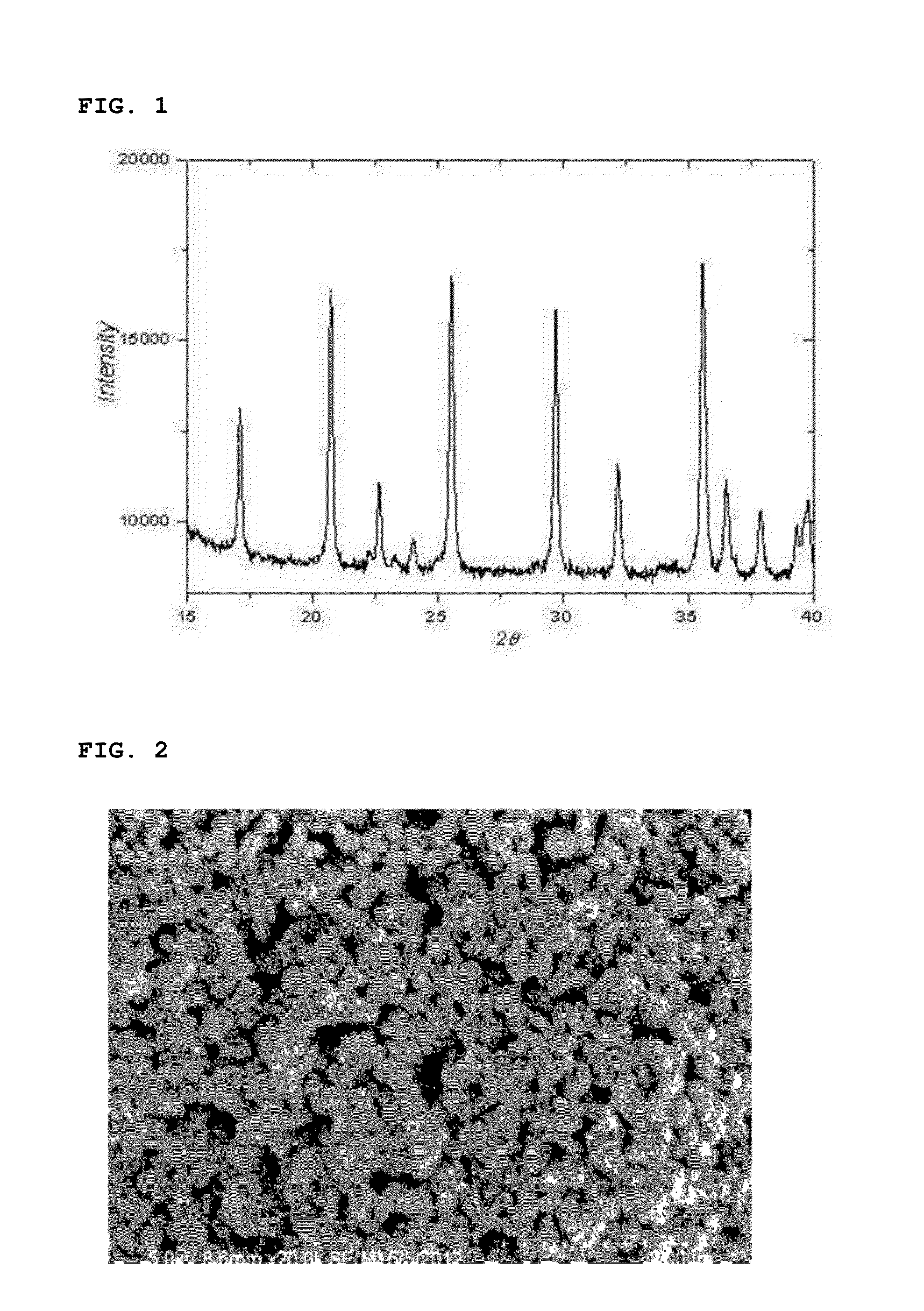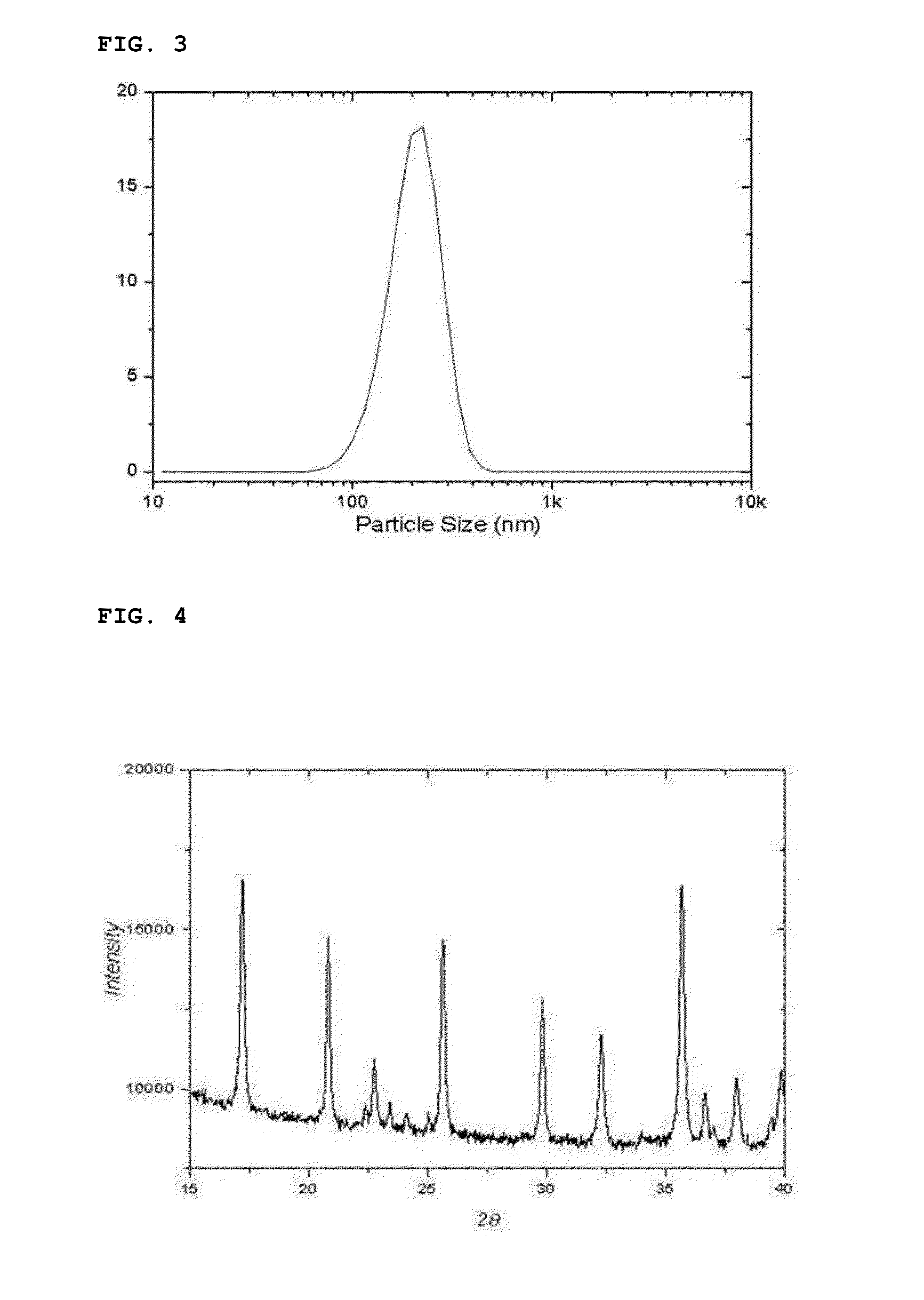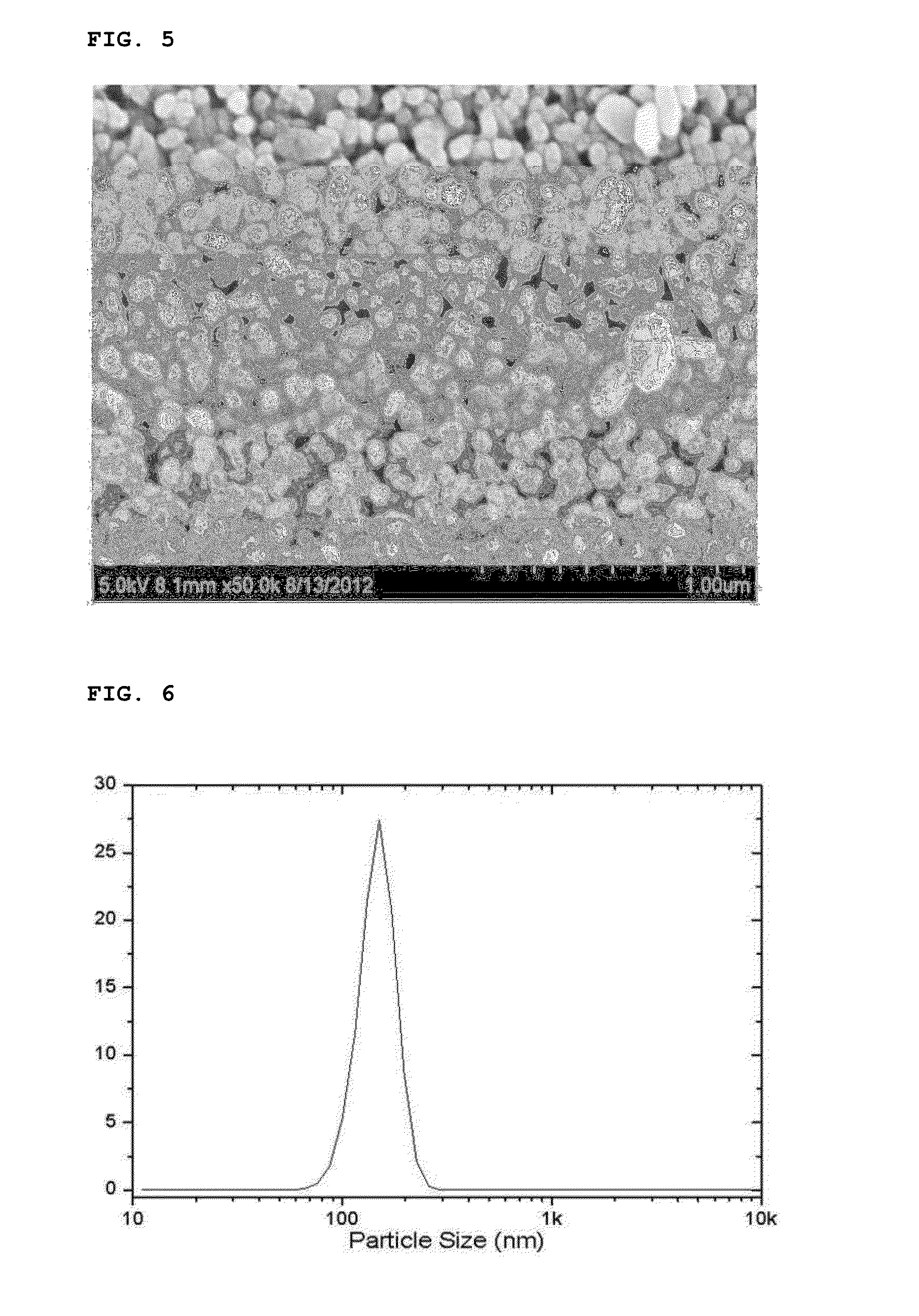Method for preparing lithium iron phosphate nanopowder
a lithium iron phosphate and nanopowder technology, applied in the field of preparing lithium iron phosphate nanopowder, can solve the problems of difficult mass production of lithium secondary batteries including thereof, affecting the safety of lithium secondary batteries, so as to achieve good capacity and stability, and ensure process safety and economic feasibility.
- Summary
- Abstract
- Description
- Claims
- Application Information
AI Technical Summary
Benefits of technology
Problems solved by technology
Method used
Image
Examples
example 1
[0087]2.04 g of lithium acetate dihydrate (CH3COOLi.2H2O), 4.90 g of ferric citrate hydrate (FeC6H5O7.nH2O) and 1.96 g of phosphoric acid (H3PO4) were added in 50 ml of 1,4-butandiol and sufficiently stirred to prepare a mixture solution.
[0088]The sufficiently stirred mixture solution was put into a 100 ml autoclave and a reaction was performed at 200° C. for 18 hours.
[0089]After finishing the reaction, the remaining reactant was cooled and washed consecutively using acetone and methanol.
[0090]After washing, the product was dried using a vacuum drier.
[0091]After finishing the washing and drying, the reaction product thus obtained was analyzed by means of an X-ray diffraction spectroscopy and a scanning electron microscope. The reaction product was confirmed to be a lithium iron phosphate nanopowder having a pure olivine crystal structure (See FIGS. 1 and 2).
[0092]In addition, the particle size distribution of the lithium iron phosphate nanopowder thus prepared was measured and is il...
example 2
[0093]0.42 g of lithium hydroxide hydrate (LiOH.H2O), 2.45 g of ferric citrate hydrate and 0.98 g of phosphoric acid were added in 50 ml of 1,4-butandiol and sufficiently stirred to prepare a mixture solution.
[0094]The sufficiently stirred mixture solution was put into a 100 ml autoclave and a reaction was performed at 180° C. for 18 hours.
[0095]After finishing the reaction, the remaining reactant was cooled and washed consecutively using acetone and methanol.
[0096]After washing, the product was dried using a vacuum drier.
[0097]After finishing the washing and drying, the reaction product thus obtained was analyzed by means of an X-ray diffraction spectroscopy and a scanning electron microscope. The reaction product was confirmed to be a lithium iron phosphate nanopowder having a pure olivine crystal structure (See FIGS. 4 and 5).
[0098]In addition, the particle size distribution of the lithium iron phosphate nanopowder thus prepared was measured and is illustrated as a graph in FIG. ...
PUM
| Property | Measurement | Unit |
|---|---|---|
| pressure | aaaaa | aaaaa |
| temperature | aaaaa | aaaaa |
| temperature | aaaaa | aaaaa |
Abstract
Description
Claims
Application Information
 Login to View More
Login to View More - R&D
- Intellectual Property
- Life Sciences
- Materials
- Tech Scout
- Unparalleled Data Quality
- Higher Quality Content
- 60% Fewer Hallucinations
Browse by: Latest US Patents, China's latest patents, Technical Efficacy Thesaurus, Application Domain, Technology Topic, Popular Technical Reports.
© 2025 PatSnap. All rights reserved.Legal|Privacy policy|Modern Slavery Act Transparency Statement|Sitemap|About US| Contact US: help@patsnap.com



